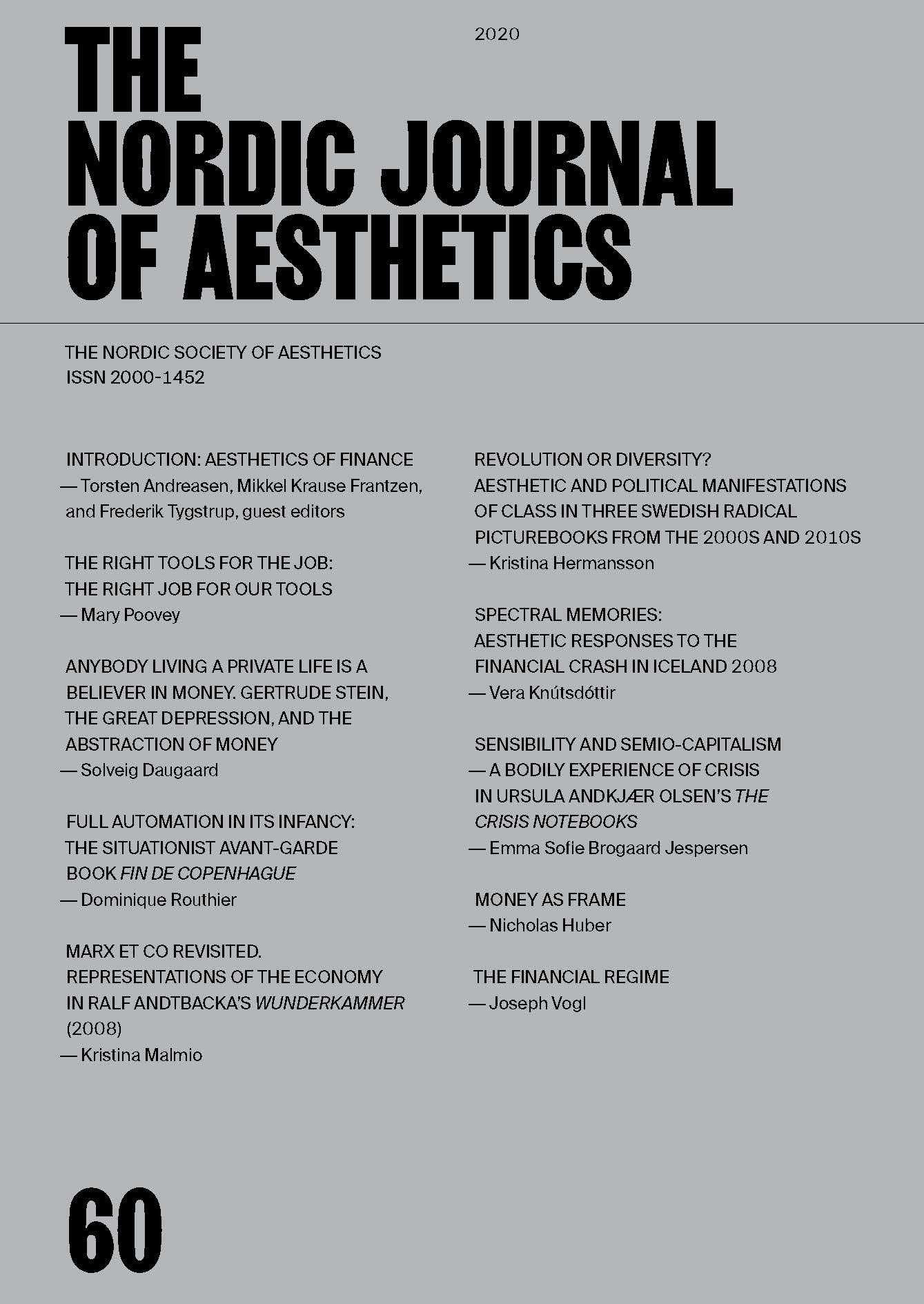ANYBODY LIVING A PRIVATE LIFE IS A BELIEVER IN MONEY. GERTRUDE STEIN, THE GREAT DEPRESSION, AND THE ABSTRACTION OF MONEY
DOI:
https://doi.org/10.7146/nja.v29i60.122838Keywords:
Money, Gertrude Stein, The Great Depression, Capitalism as Religion, The 1930s, Infrastructural Poetics, Patriarchs, ModernismAbstract
The article considers Gertrude Stein’s reflections about the increasing abstraction of economics in response to the Great Depression and Roosevelt’s New Deal in a number of explicitly political pieces from the mid-1930s, including “A Political Series” (1935), and her five brief newspaper commentaries on “money”: ”Money”, “More About Money”, “Still More About Money”, “All About Money”, and “My Last About Money” (1936). The article then relates them to Walter Benjamin’s and Giorgio Agamben’s ideas about the religious implications of the money system that resonate with Stein’s salute to the “believer in money” as security against contemporary authoritarian tendencies. Stein’s opinion pieces argue against taxation, unionism, and public spending, yet also demonstrate the slippery passage between her explicit conservatism, her economic liberalism and her still present radicalism and critique of patriarchal authority as they recycle crucial elements from contemporaneous works such The Geographical History of America (1935) and Everybody’s Autobiography (1937).
Downloads
Published
How to Cite
Issue
Section
License
Authors who publish with this journal agree to the following terms:
- Authors retain copyright and grant the journal right of first publication with the work simultaneously licensed under a Creative Commons Attribution License that allows others to share the work with an acknowledgement of the work's authorship and initial publication in this journal.
- Authors are able to enter into separate, additional contractual arrangements for the non-exclusive distribution of the journal's published version of the work (e.g., post it to an institutional repository or publish it in a book), with an acknowledgement of its initial publication in this journal.
- Authors are permitted and encouraged to post their work online (e.g., in institutional repositories or on their website) prior to and during the submission process, as it can lead to productive exchanges, as well as earlier and greater citation of published work (See The Effect of Open Access).




